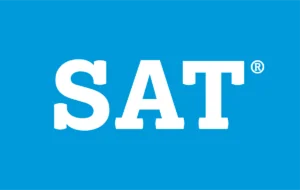Anyone, who is now or has been a university student, has gone through the same situation: being unprepared for an exam. Most of the time, this is also an exam that you have the same week that you remember it. It’s a situation many students find themselves in – the struggle of catching up when you feel like you’ve fallen behind. So, what exactly do you do when you only know half of what you need for the exam? Especially if your past tests haven’t gone all that well either?

✅ AI Essay Writer ✅ AI Detector ✅ Plagchecker ✅ Paraphraser
✅ Summarizer ✅ Citation Generator
Key Takeaways
- Even if unprepared, attending the exam can benefit you. Attending an exam can demonstrate effort, which is crucial especially if you’re facing academic probation.
- If you have a short time before an exam, like two days, use it effectively. While it’s challenging, focusing and covering as much material as possible can improve your performance.
- Knowing your academic options and making smart choices is vital. Taking accountability from the start of the course, managing tasks efficiently, and understanding when to prioritize classes over other activities are key to academic success.
Let’s face it: all of us have found ourselves in a situation, where we forget about deadlines, tasks, and exams, and only remember about them when there’s little time to do them properly. This is something near to a universal experience, at least for students. This fact is also confirmed by a recent story of a freshman student shared on Reddit.
The OP has two days until the final exam. Everybody knows that there’s not enough time even to learn something by rote. Sure, there may be a chance that, if every second and minute of these 2 days are dedicated to studying, a student would be more prepared for the following examination. But is it really a well-working strategy? Maybe it’s better to leave everything to luck? Redditors shared their opinion on this matter, with most recommendations being based on personal experiences.
Just Showing Up Also Matters
When you’re not ready for an exam, you might think, “Why bother?” But here’s the thing: showing up matters. Like someone said:
“You might not pass the class, but go see what’s on the test.”
This way, you know what to expect if you have to take it again. Plus, if you skip, you get a zero. That’s going to hurt your grade more than if you at least try. As was pointed out,
“Even a bad score is better than no score. It might make your average a bit better.”
Even if the grading system in your university doesn’t work like that, there’s another good reason to go. If your first semester isn’t going great, you might end up on academic probation. That’s when the school watches your grades closely. If you show up for the exam, it shows you’re trying. One Redditor encouraged to:
“Go and try. It’s important to show you’re making an effort, especially if things get tougher later.”
So, even if you feel like you can’t pass, taking the exam can help in other ways. It’s about showing up and doing your best, no matter what.
If You Got At Least Some Time – Don’t Waste It, Study!

When you’ve only got two days before an exam, “grinding the studies” becomes a race against time. One route you can take is to maximize every hour:
“You have likely at least 30 available hours for studying. Just do it…and try to cover as many topics as possible with a bare knowledge level.”
This strategy is about playing the odds, skimming through as much material as possible, and hoping for a bit of luck. However, the effectiveness of this method can depend on the circumstances. As one person points out,
“That depends entirely on the subjects. If it is theoretical…do THIS!! If it is engineering, math, science…30h will not be enough to cover a course and understand it.”
Yet, some argue that 30 hours can be quite effective if used wisely:
“If you’re actually studying during those 30 hours then that’s way more than enough.”
This perspective also underscores the difference between sitting at a table staring at an opened book and actually focused studying. Another person notes, “I think 30h is probably enough for most freshman courses,” suggesting that the complexity of the course plays a role.
The consensus seems to be that while it’s a tough spot, it’s not impossible. “Any grade is better than no grade,” says one advisor, repeating that even an exam attempt is crucial. They suggest,
“Study all you can and hope for the best. Two days is two days. You got it.”
No matter how much time you have, everything is in your hands! It’s all about doing your best with what you have, keeping a positive attitude, and learning from the experience for future exams.
Smart Choices in Tough Academic Times
Educators might (or might not) be surprised, when they find out how many students find themselves in situations when they bite off more than they can chew and then struggle to keep up. It’s basically what the whole academic experience is all about.
However, not every student knows that even in this kind of situation they still have different options.
The key point here, however,is not that you should drop every other course you don’t have time for. The real deal is that taking accountability should start the first second you enroll in the course. This means building a schedule in a way that allows you to manage tasks and exam preparations well and on time. It means prioritizing classes over other activities sometimes (just not your physical or mental health). Only then you can avoid finding yourselves in these situations regularly. This may sound cliche, but this is also how you can eliminate stress from your academic life.
How To Manage Your Studies Before It Gets Too Late
Effectively managing your studies is crucial for academic success, particularly when faced with tight deadlines and upcoming exams. A good starting point is to create a study plan by breaking down your study material into smaller sections and scheduling them over a period of time. This can help in covering all topics without overwhelming yourself.
Establishing a consistent study routine can also be beneficial. Allocating specific times for study throughout the week and creating a system that works for your lifestyle and other commitments is key to maintaining balance. It’s often helpful to tackle easier or smaller tasks first, especially immediately after school or in a productive environment. This strategy allows you to clear your mind for more intensive study sessions later.

Prioritizing your tasks is another important aspect. Listing your subjects and assignments in order of importance helps in focusing on the most critical areas first. This approach can prevent feeling overwhelmed and keep you on track with your progress.
Staying on track also involves committing to a well-thought-out schedule, possibly setting self-imposed earlier deadlines to avoid the consequences of procrastination. Estimating the time required for each task and taking regular breaks can enhance efficiency and focus.
Organization plays a significant role in managing studies. Keeping a physical or digital agenda to track daily tasks and upcoming deadlines can provide a clear overview of your responsibilities. Setting up a reward system for completing tasks can offer additional motivation.
Lastly, planning ahead each week by anticipating and listing out expected assignments can help in staying ahead of due dates and reduce the stress of last-minute cramming. By adopting these strategies, you can navigate the challenges of academic life more effectively, turning potential stress into manageable and successful outcomes.
Conclusion
Facing an exam unprepared is a common experience for many students, but it doesn’t have to end in defeat. Showing up for the exam is important, as it can mitigate the negative impact on your grades and show your commitment to learning. If you find yourself with limited prep time, use it wisely to cover as much ground as possible. Most importantly, remember that being a student involves making smart choices about your course load and knowing when to seek help or prioritize your studies. It’s about striking a balance between your academic responsibilities and personal well-being, ensuring that you’re setting yourself up for success both in your current studies and in your future endeavors.
Follow us on Reddit for more insights and updates.





Comments (0)
Welcome to A*Help comments!
We’re all about debate and discussion at A*Help.
We value the diverse opinions of users, so you may find points of view that you don’t agree with. And that’s cool. However, there are certain things we’re not OK with: attempts to manipulate our data in any way, for example, or the posting of discriminative, offensive, hateful, or disparaging material.